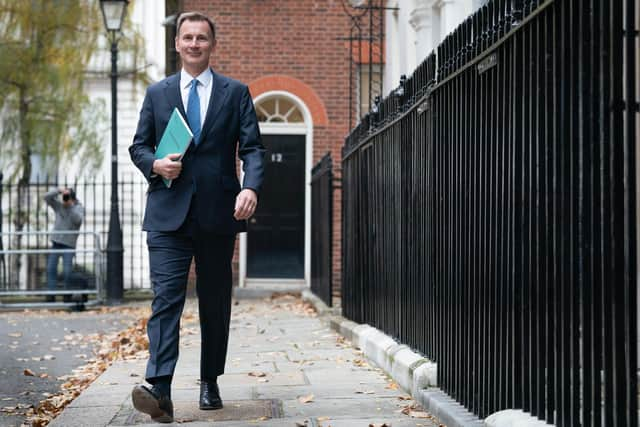What the changes to your earnings by Chancellor of the Exchequer Jeremy Hunt actually mean in simple terms
and live on Freeview channel 276
This is via changes to National Insurance and the National Living Wage.
The National Living Wage is the hourly rate paid to all those over the age of 23 (though from this coming April onwards, 21 year olds will get it too).
Advertisement
Hide AdAdvertisement
Hide AdThe chancellor told MPs this hourly rate will increase from £10.42 to £11.44 from April 2024 – "the largest ever cash increase".


When it comes to National Insurance for employees, this is deducted straight from workers’ paypackets before their wages hit their bank account.
For anybody earning between about £12,500 and £50,200, the amount of National Insurance deducted right now is 12%.
This band takes in the vast majority of the workforce, with some exceptions (like under 21s, apprentices under 25, and workers over pension age).
Advertisement
Hide AdAdvertisement
Hide AdThe government says its cut from 12% to 10% will mean the average worker earning £35,400 a year shall see “an over £450 annual tax cut".
But although Mr Hunt promised the relief would be “immediate”, this change will not kick in until the New Year.
Meanwhile, those who earn below the £12,500 threshold currently pay nothing, and those above the £50,200 threshold only pay 2% in National Insurance. There is no sign these rates are changing.
National Insurance for self-employed people is dropping from 9% to 8%.
Advertisement
Hide AdAdvertisement
Hide AdBut self-employed national insurance is more complicated: it only applies to profits which a self-employed worker earns between £12,570 and £50,270.
Almost everyone who is self-employed pays Class 2 National Insurance (except for some classes of people, such as those "running a business involving land or property").
Cutting this rate from 9% to 8%, the chancellor says, means "saving the average self-employed person on £28,200 a year £350".
However, this will not kick in until April 2024.